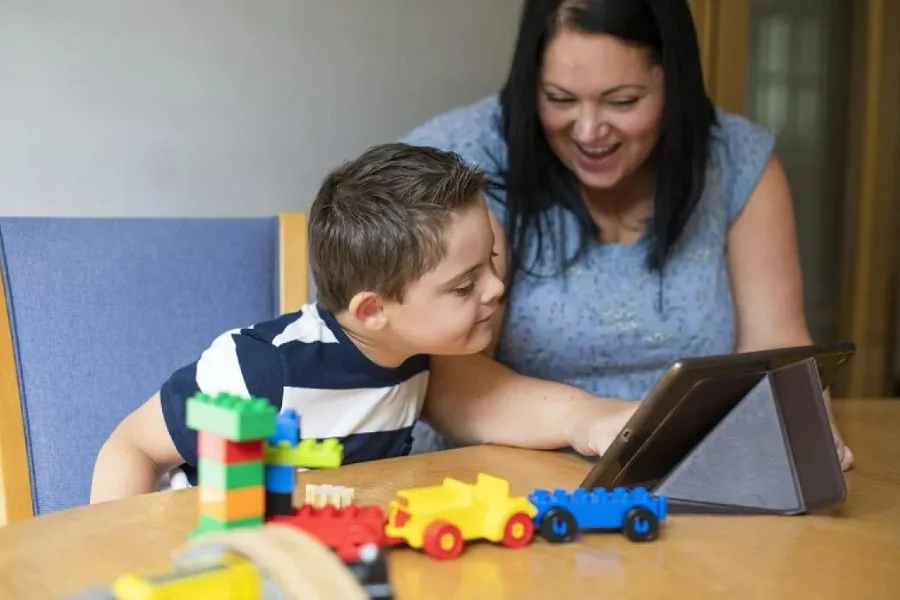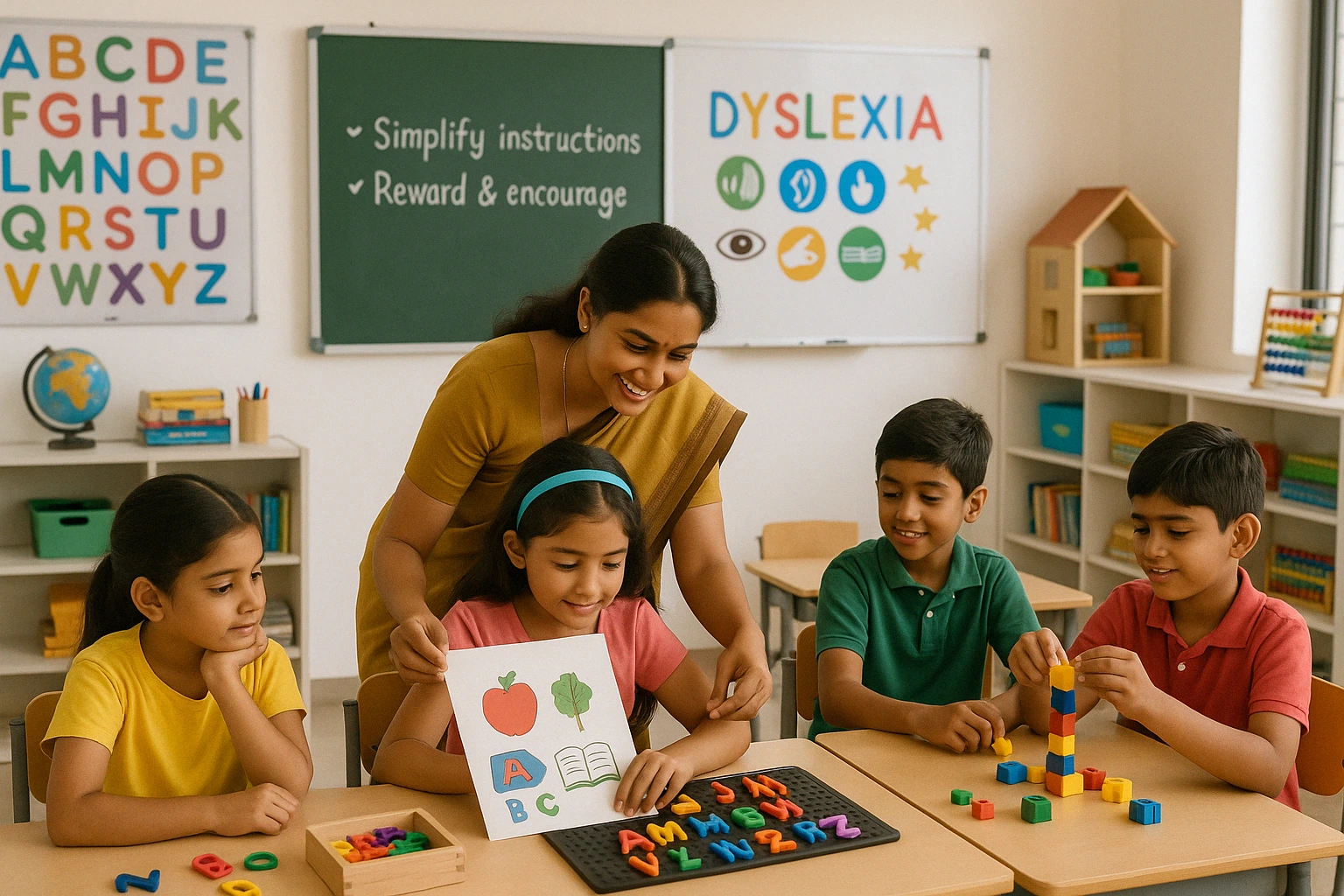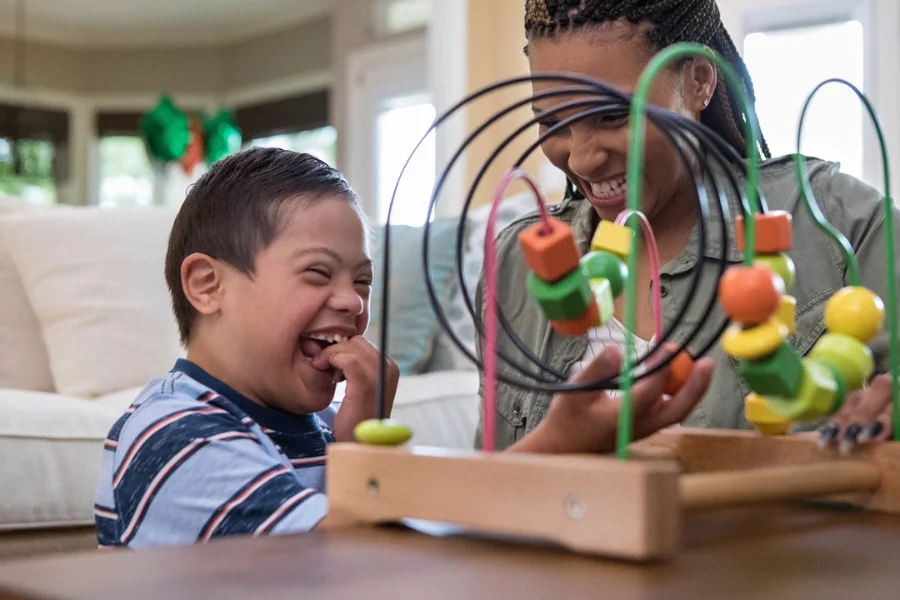Source: istockphoto
Knowing the fact that problems concerning sleep happen in up to 50% of the children who have ADHD and Sleep, it is of no surprise that sleep problems are reported to be rather prevalent in ADHD, as well as sleep problems, tend to form an interrelated negative cycle where the symptoms of each elicit exacerbation of the other. There are several sleep disturbances that ADHD Children experience, including difficulty falling asleep, prolonged sleeplessness, or awakening at the wrong time.
On the following day, the sleep deficiency carried over from the previous day may result in even pronounced lack of concentration, mood swings, as well as aggravating problems with behavioural control. These days, it has become imperative for ADHD caregivers to understand the association between sleep and ADHD to create reasonable and practical solutions to facilitate sleep.
What are Some Sleep Problems Experienced by Children with ADHD?
Sleep Deprivation can have serious consequences impacting the overall health, emotional well-being and daily functioning. Children with ADHD and Sleep are noted to have a lot of sleep issues, due to which their overall functioning gets affected, influencing the quality of their sleep.
Some of the most prevailing problems children with adhd face are listed as under:
Difficulty Falling Asleep
ADHD individuals find it difficult to unwind at night. Due to several reasons, their mind is not at ease and is filled with unending thoughts and impulsivity. This makes it extremely difficult to get sound sleep at night.
Frequent Night Waking’s
Children with ADHD tend to get up several times in the night, which disrupts their sleep routine, leading to fatigue and low energy the next day.
Restless Sleep
ADHD children do not get sound sleep; they tend to wake up now and then, engage in talking, and are extremely fidgety, leading to poor sleep quality.
Short Sleep Duration
Due to poor sleep quality and waking up continuously, adhd individuals get very less hours of sleep, affecting their attention and behaviour issues.
Erratic Sleep Phase
As their sleep pattern is erratic, they find it difficult to wake up in the morning, leaving them cranky and irritated.
Sleep Anxiety
As ADHD individuals have poor sleep quality, they become anxious around their bedtime, due to which they fail to get adequate rest to rejuvenate for the next day.
Taking a proper account of the above challenges is the first step towards finding suitable solutions for better sleep habits for children with ADHD and Sleep, enhancing their overall health.
Click here to download the SEN Course brochure!
To enrol for the SEN Course, Call / WhatsApp on +919321024137 / +919869866277.

Source: royalfarwest
What is the Impact of Sleep Problems in Children with ADHD?
Sleep problems can make life even more challenging for children with ADHD and Sleep. Poor sleep doesn’t just lead to tired mornings—it can also worsen the very symptoms families are trying to manage.
The impact of sleep problems in children with ADHD can be seen in many areas of daily life:
- Severe focusing problems: Improper sleep and poor quality lead to severe focusing issues at school and make the child even more distracted.
- Increased Hyperactivity: Sleep-deprived children often show more restlessness and have difficulty staying still.
- Emotional Meltdowns: Due to lack of sleep, the child feels tired and frustrated, which can lead to mood swings, aggressiveness and an emotionally disturbed child.
- Slower Learning and Memory: Children with ADHD with poor sleep patterns cannot remain fresh the next day, due to which their memory retention might suffer, leading to poor academic results.
- Poorer Physical Health: Due to poor sleep patterns, the child tends to fall sick frequently, which takes a toll on their physical as well as mental health.
Poor sleep patterns of the child may affect all the family members, as it has an effect on the entire household’s peaceful sleep and emotional well-being.
Gaining deep insights into the above sleep problems helps parents and caregivers to be well-prepared and equipped to take essential steps that help in supporting better sleep patterns, influencing their overall well-being.
Click here to download the SEN Course brochure!
To enrol for the SEN Course, Call / WhatsApp on +919321024137 / +919869866277.
Why do Children with ADHD Have these Sleep Problems?
It has been proven that around 70% of ADHD individuals face sleep problems due to various reasons. The main features of ADHD, including impulsivity and brain signals, interfere with the sleeping ability of the child, leading to poor sleep patterns.
Differences in Brain Activity
The ADHD child has a problem with certain parts of the brain concerned with being self-modulatory and alert. Hence, being self-modulatory can be a problem, particularly during the latter hours of the day when the child needs to go to sleep.
Delayed sleep-wake cycles
It is a common observation that children with ADHD tend to be what is called sleep phasic, that is, they tend to take a longer time than the average sleep onset latency. This, however, does not align with the institutional and domestic rhythms.
Agitative behaviour
Due to a tense mind and poor rest, the child has excessive energy that he doesn’t know how to utilise, making him more agitated and fidgety.
Overlapping Mood and Behavioural Issues
ADHD individuals face anxiety and mood swings quite often, due to which their ability to sleep takes a hit very badly.
High Sensitivity Issues
Children with ADHD can be highly sensitive to loud noises, blaring lights that can affect their sleeping abilities.
Medicinal Reasons
When ADHD medicines are consumed at a later time, they can disrupt the sleep pattern, leading to hyperactivity at bedtime.
When the root causes of poor sleep patterns are determined, it helps parents and caregivers to incorporate appropriate techniques to enhance the sleep routines of the child, ensuring better and improved activity levels.
Click here to download the SEN Course brochure!
To enrol for the SEN Course, Call / WhatsApp on +919321024137 / +919869866277.

How to Help Children with ADHD?
Sleep is a very important function of the body as it refreshes the mind and body and prepares it for handling the next day’s routines. Sleep not just helps the mind to rejuvenate but also helps the body to develop good immunity, warding off any diseases and health issues.
With healthy sleep patterns, the brain functions properly and helps to polish the individual’s cognitive skills as well.
Children with ADHD suffer from a lot of sleep difficulties, so dealing with them requires a thorough understanding of their sleep patterns should be done to address the root cause of sleep difficulties and, accordingly, find suitable techniques to improve their sleep patterns.
Including essential methods such as adequate physical outdoor activity and limited screen time can be extremely helpful in enhancing better sleep patterns for the child.
Sleep hygiene is one of the more targeted “ADHD” challenges an educator will tackle, so I’m sure you will benefit from this need. In their Tell Me About ADHD/Special Education Needs course, The Vidhyanidhi Education Society (Govt. Regd.) will provide teachers with the target sleep instruction strategy to better help children with ADHD.
Here are some effective ways to help children with ADHD sleep:
- Monitor a consistent sleep routine: Following a regular bedtime routine helps the child to feel calm, which helps the brain relax and regulates emotions better for better sleep.
- Limit Screen Time before Bed: Make it a habit to switch off all the gadgets at least an hour before the child sleeps so that his mind is not preoccupied with any racing thoughts, helping the brain prepare the body to rest.
- Follow a steady sleep schedule: Maintain a consistent sleep schedule, especially the waking-up and sleeping times.
- Calm and quiet sleeping space: Do not keep blaring sounds or bright lights that disrupt the child’s sleeping space. Keep it simple and dimly lit for the child to get a sound sleep.
- Watch for Medication Timing: Update the Doctor if the ADHD medications are clashing with the child’s bedtime and make modifications accordingly.
- Foster the habit of playing outdoors: Unstructured movement and outdoor play can quantity step to physical tiredness by sleeping time.
- Introduce measures for relaxation: Bedtime anxiety can be attuned by softer touches of stretching accompanied with deep, eased breaths, mindful of thoughts.
The Special Education Needs Course is a superb opportunity for educators to learn more about behavioural patterns, types of learning and effective tools to aid better focus and sleep. Parents and educators who take their time to learn more through the Special Education Needs Course will help children with extreme care and support.
Join Vidhyanidhi Education Society (Govt. Regd.) for expert ADHD insights & transform lives! Enrol now.
Click here to download the SEN Course brochure!
To enrol for the SEN Course, Call / WhatsApp on +919321024137 / +919869866277.
ADHD and Sleep
FAQs
How Can I Help My Child Sleep Well With ADHD?
Cutting down on the child’s screen time, ample outdoor activities and a quiet sleeping space can help the child with ADHD sleep well.
Can Children Take Sleeping Pills?
Sleeping pills are not the first choice for children. Always consult a doctor before giving any sleep aid, especially for kids with ADHD.
How Much Sleep Does an ADHD Child Need?
Children with ADHD typically need 9–11 hours of sleep. The Special Education Needs Course by Vidhyanidhi Education Society offers helpful strategies.




